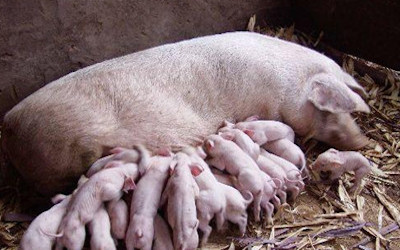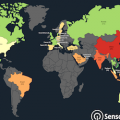PTE考生目前最大的问题之一就是练习题缺乏。除了有限的基本官方书(PLUS,Testbuilder, OG)之外就没有题了。很多英语基础不是很扎实的同学很难找到练习材料。悉尼文波雅思PTE培训学校专门为澳洲,尤其是悉尼、墨尔本的PTE考生准备了适合PTE听力阅读练习的科学60秒。各位PTE同学可以练习PTE听力中的summarise spoken text和PTE口语中的retell lecture,PTE听力口语-科学60秒-Frosty Moss练习记笔记技巧和复述。废话少说,下面开始:
听力内容:
60秒科学节目(SSS)是科学美国人网站的一套广播栏目,英文名称:Scientific American – 60 Second Science,节目内容以科学报道为主,节目仅一分钟的时间,主要对当今的科学技术新发展作以简明、通俗的介绍,对于科学的发展如何影响人们的生活环境、健康状况及科学技术,提供了大量简明易懂的阐释。
This is Scientific American — 60-Second Science. I’m Jason Goldman.
Human parents usually have one or sometimes two offspring at a time, and when babies get delivered we pour all our energy into child rearing. But other animals raise lots of babies at once. And the weaker individuals can be at a big disadvantage. If there’s not enough food, for example, a mother bird might offer more to those chicks who are more likely to survive. Nature’s a rough place.
But mammals like pigs can’t selectively provision their offspring the way birds do, because all the babies nurse at the same time. And yet the strongest piglets still seem to have an edge. One hypothesis goes that the weaklings might not have sufficient energy to stimulate the mammary gland while they suckle, so they eventually starve from a lack of nutrition.
But it turns out that vigorous stimulation of one mammary gland can increase blood flow in neighboring glands. So if a weakling was canny enough to position himself next to one of his strongest siblings, he might get more milk than positioned elsewhere.
“I got this idea during observations of piglets, of course, because I had a feeling that weaklings are doing better in the company of the strongest siblings.”
Biologist Janko Skok from Slovenia’s University of Maribor.
To see if his hunch was right, Skok observed 18 litters, including 150 piglets. Twenty-three of them were classified as weaklings, which meant they weighed less than one kilogram at birth or they died before weaning. Then he looked to see what differentiated the weaklings that survived from those that died.
And indeed, those weaklings that survived were more likely to nurse next to their strongest brothers and sisters. “Weaklings, which are limited in terms of mammary gland stimulation, actually take advantage of strong stimulation implemented by their heavier siblings, who in turn do not suffer any costs from this activity.”
The research were published in the journal Behavioural Processes.
Skok says that pig breeders commonly sort piglets into different weight classes, so the heaviest babies nurse together with one mother while a different mother raises the weaker babies. But his results might mean that more piglets could survive if breeders instead mixed piglets of different sizes, so that the smaller ones could take advantage of their larger counterparts.
What this finding does not explain is why my younger brother, who as a kid always and failed to steal my dessert, is now stronger than I am.
Thanks for listening for Scientific American — 60-Second Science Science. I’m Jason Goldman.
墨尔本悉尼文波PTE原创首发
更多精彩请持续关注微信wenbo_tv3。





